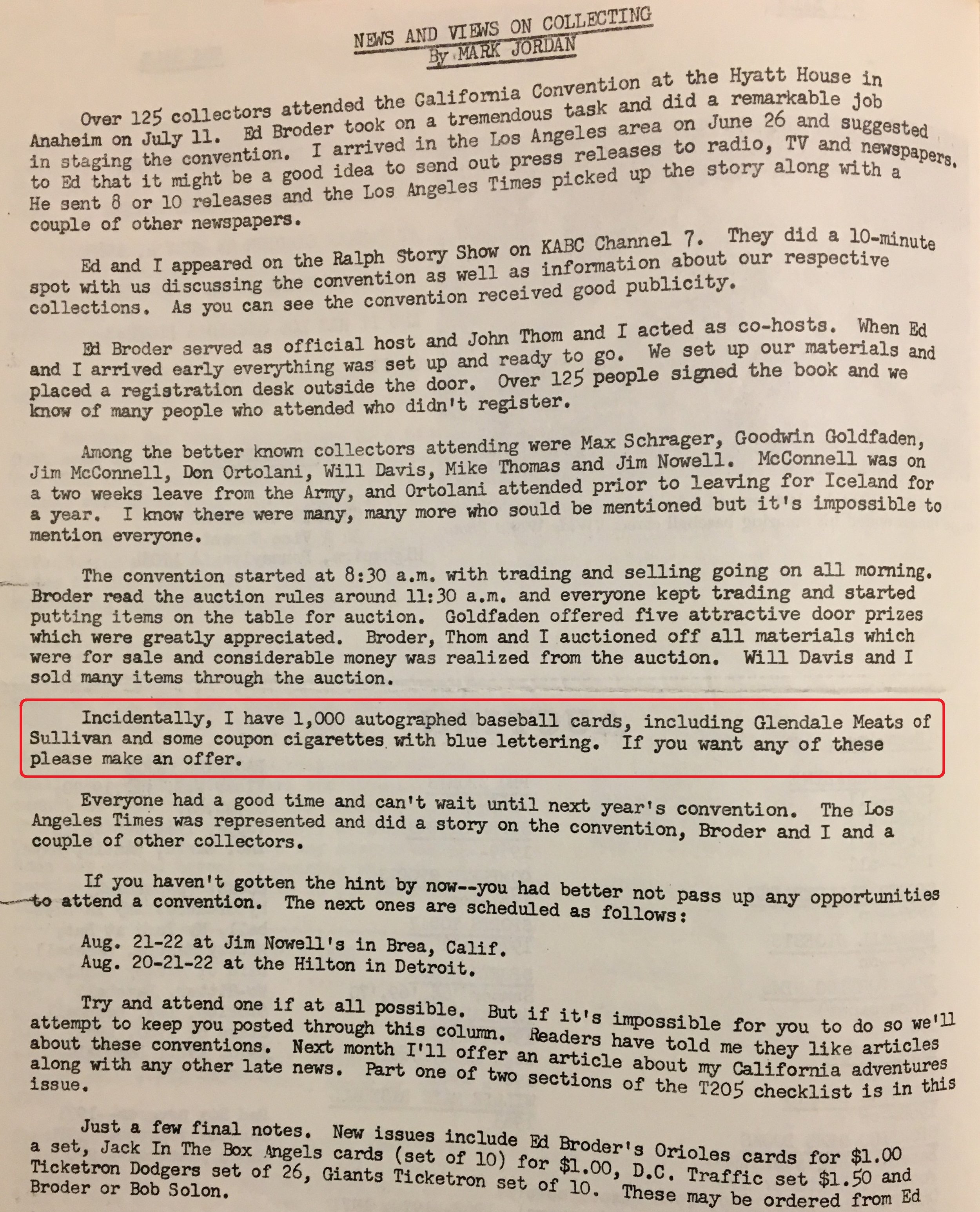Chasing the Source of Signed T206 cards (Or How I Stopped Worrying and Learned to Love Autograph Collecting)
Immediately, following the December 2018 disclosure of over a dozen forged signatures on T206 cards appearing in several big auction houses, I spent a good two months researching the sources of authentic autographed pre-war cards back as far as possible. There is good reason to be suspicious with any autograph you did not get in person. I do think it is up to every autograph collector to do what he can to educate himself before collecting autographs. Forgeries have always been part of the autograph hobby, at least from the first time someone witnessed a collector spending money on an autograph he didn’t get in person. It is why so many do not collect autographs of deceased folks and do not understand why anyone in their right mind would.
A lot of suspicion with respect to the authenticity of any T206 card with an autograph is driven by the experience of hobbyists, most of whom never heard of or otherwise saw authentic signed pre-war cards being discussed in any public hobby magazine or forum until the last 10 or 15 years. So, I have been speaking with the folks who got the autographs on the cards and, with a lot of help from Hobby Historian David Kathman, reviewing a number of old hobby publications from the 1950s and 60s to try to uncover some evidence of their existence.
A large part of my collection, and the rest of the signed pre-war cards in the hobby, come either directly or indirectly from Jeff Morey. I was able to interview Jeff in 2007, and he and I have been hobby friends ever since. You can see Jeff’s collection and listen to his interview HERE.
Jeff sold most of his collection in Mastro auctions in 2001; but before he did, he made black and white photo copies of most of his cards. He recently sent me a picture of him with his collection circa 1973, and in the bottom right corner of the photo, you can see a photo album open to a page containing 15 autographed T206 cards. Jeff dated the photo based on the 1972 Hall of Famer photographs over his shoulder, and the picture over his head of Richie Coggins, who last played for Rochester in 1972. Although Mastro did not take pictures of the entirety of Jeff’s collection, you can still line up the 1973 picture with the cards that he submitted to Mastro in 2001, based on the black and white photo copies of his collection that he made in anticipation of that consignment.
And you also can see that Jeff sold the Cicotte pictured in the top row above in the March 25, 2002 Mastro Auctions (screenshot below) for just over $1,000. In short, we have photographic proof of the same signed T206 Cicotte over a 30-year span, dating back now almost 50 years!
Based on hobby publications, we also have documentary proof back to 1969 (the year that Cicotte died) that Jeff had the same signed Cicotte — and had listed it for sale — in the July 1969 Sports Trader, where Jeff offered "1910 T205 (sic) White Border Cigarette Cards signed" of Cicotte, as well as Sam Crawford, Bill Carrigan, Lefty Leifield, and Fred Snodgrass:
Digging deeper, I was very happy to find a summary of Jeff’s collection in the March 1968 Sports Collectors Journal, in which Jeff stated that among his “most valuable items” were “some 1910 old baseball cards autographed by such men as Sam Crawford, Tris Speaker, Ty Cobb, and Napolian (sic) Lajoie.”
Somehow more exciting was finding Jeff attempting to sell autographed tobacco cards as early as 1968. In the January 1968 issue of Sports Trader, you can see Jeff offering “1910 era cig cards – Carrigan – signed on back” and “wahoo Sam Crawford – 2 diff, each $2.00 – signed on picture”:
The below comes from page 10 of an autograph mailer that Jeff sent to a collector list in May 1972. You can see that his signed T206 collection was really starting to grow.
I recently asked Jeff whether he recalled selling these signed tobacco cards, and he said “No — think they stayed with me a bit – even back then many did not understand the fun of signed BB cards.” I actually think they remained unsold until Jeff sold his entire collection through Mastro in 2001. As hard as it is to imagine, but while there may not have been much of a supply of signed pre-war cards prior to 10 or 15 years ago, interest in them was not particularly high either. So many of the first group of signed T206 cards I began picking up in 2004 were available for about $100, some for under that. It was not until about 2008 or later that prices started to pick up, and more surfaced – some due to forgery in response to the exorbitant prices being realized.
As an aside, where did Jeff get all of these old baseball cards to get autographed? From fellow collectors, of course. In fact, in the April/May 1957 issue of Sport Hobbyist, Jeff placed a classified ad seeking T202 and T205s, among other cards, both kinds of which he was able to get signed.
Jeff is still at the autograph game today, over 60 years after he got started back in the 1950s. This photo was taken in his home town of Syracuse in March 2019.
But Jeff was not even close to the only collector who thought that getting pre-war cards signed was a good idea. Mark Jordan, currently Consignment Director, Sports, at Heritage Auctions, also was a collector of signed pre-war cards. Mark wrote an article called “News and Views on Collecting” in the August 1971 issue of Sports Trader. As you can see below, Mark wrote: “Incidentally, I have 1,000 autographed baseball cards, including Glendale Meats of Sullivan and some coupon cigarettes with blue lettering.”
That’s right, Mark was talking about autographed T213-2s! I’ve never seen a signed T213-2 before, and while Jordan recently confirmed for me that he did indeed write this article, he was not able to confirm what he had in his collection over 45 years ago, or where they might be today.
Indeed, hobby publications in the 1960s and 1970s had many references to autographed pre-war cards. If you were lucky enough to carefully read page 29 of the February 1976 issue of The Trader Speaks, you could have walked away with an autographed Fred Snodgrass T206 card -- WITH A HINDU BACK -- for $3.00! Many would pay 1,000 times more for that card today.
One thing I have definitely learned from all of this is to preserve the provenance. For many, once PSA, SGC, or Beckett put a signed card in the case, the value of provenance is significantly diminished. The card now entombed is supposedly forever authentic just because a third-party authenticator said so. But, who can ignore the relevance of the letter Fred Snodgrass once wrote to hobby legend John D. Wagner enclosing a “cigarette photo card with my autograph” (below)?
Or Doc Steen’s correspondence, with postmarked envelope, in which Doc Steen asked Nap Lajoie to sign his M101-2 Sporting News Supplement, and Nap replied “Send picture. I will take care of it.” And he sure did!
Auction houses have been separating letters from cards, and throwing the envelopes into even another lot because they can sell the envelope as a separate autograph if the player wrote his last name in the return address. The 2018 Steiner "Spring Fever" Auction (May 6, 2018) had four signed T206 cards in it from a wonderfully large through the mail collection. Steiner broke the entire collection up and failed to share the evidence of where the cards were obtained, by whom, and how. For example, the original baseball address list that the collector used to find his ballplayers was also buried deep in the auction, as just a random, soulless vintage baseball player address list. Favorite of signed T206 collectors — Rube Marquard — has his address shown here:
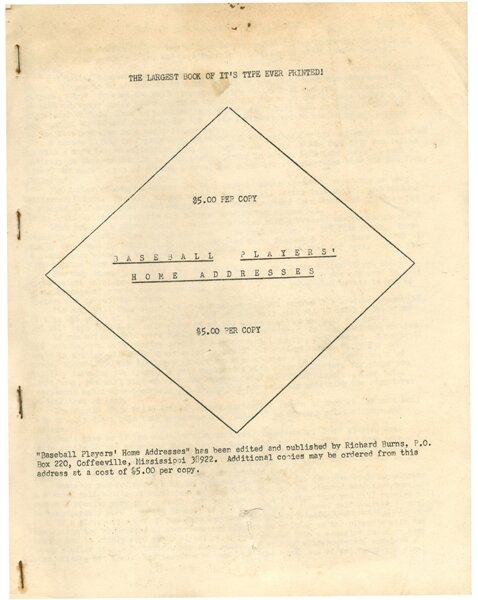
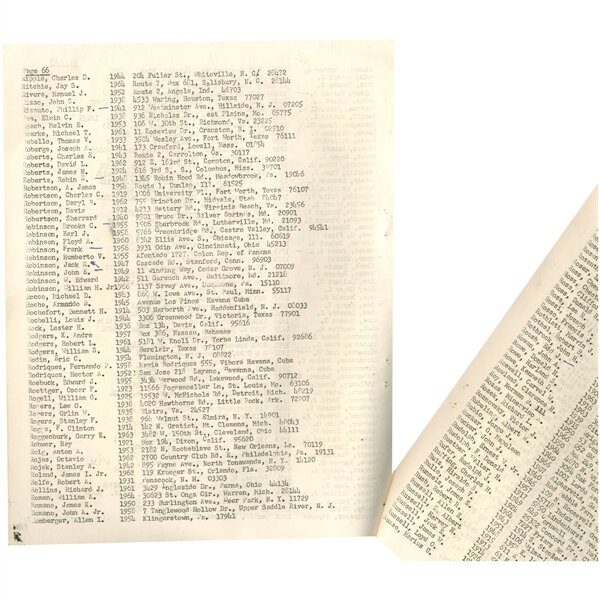
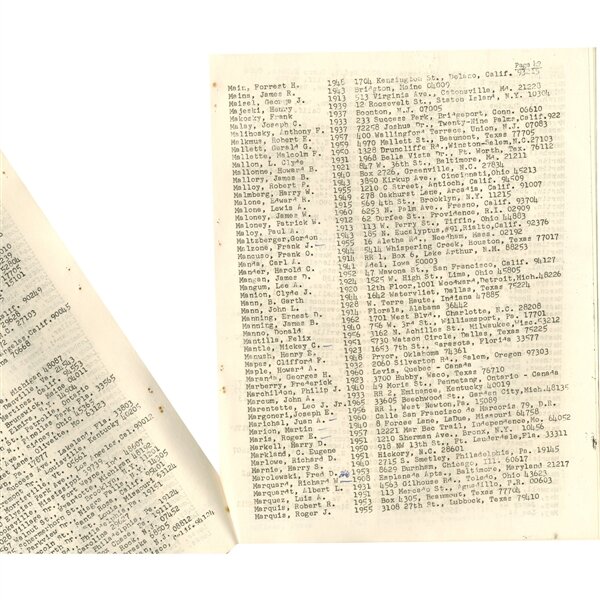
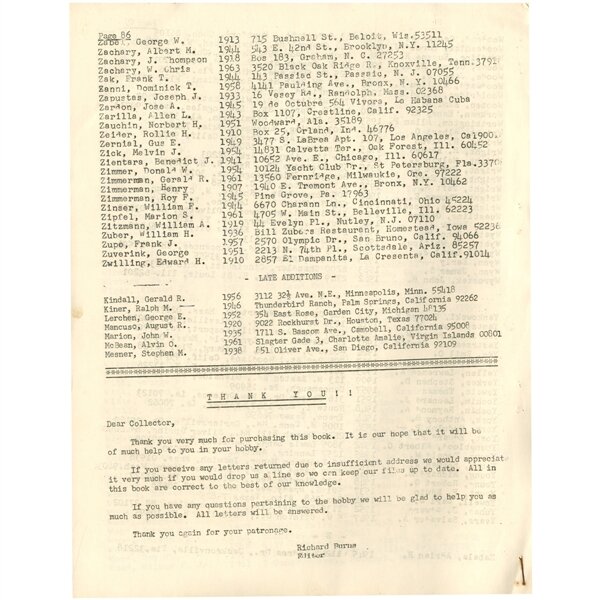
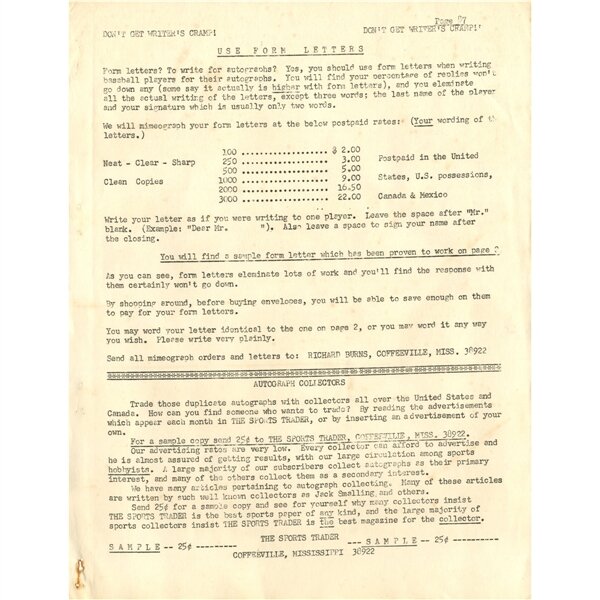
There was space for a “description” like “This is how our consignor of hundreds of TTM autographs found his players” but instead it was left appallingly blank. With the help of some additional information Steiner provided to me, I spent several hours combing through two different Steiner Auctions to piece back together the fabric and soul of this collection, which by the way happened to include four signed T206 cards — Doc White, Sam Crawford, Elmer Flick and Fred Snodgrass:
The signed T206 cards were probably obtained around 1966, which is when Crawford dated his. All four came from the same private collection of a retired attorney in his mid-70s named Tom Marsilio. How do I know that? Because the owner of these cards was primarily a 3x5" index card collector, and the auction featured several of his cards where the players wrote "Dear Tom Marsilio". In fact, Steiner sold a collection of over 200 signed index cards that he collected from the mid-1950s to early 1960s. You can read my brief correspondence with Tom in an article about his collection HERE.
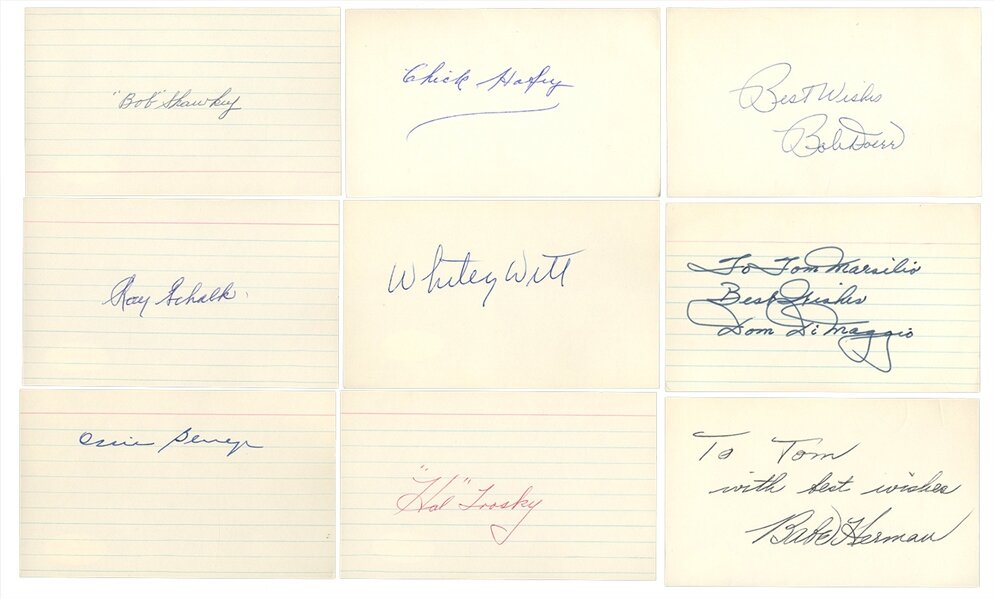
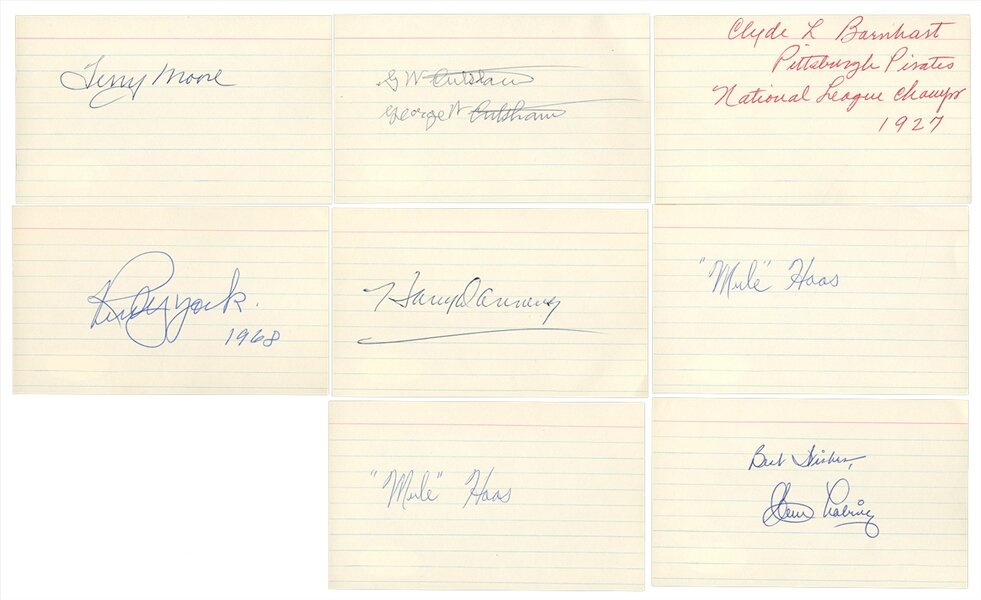
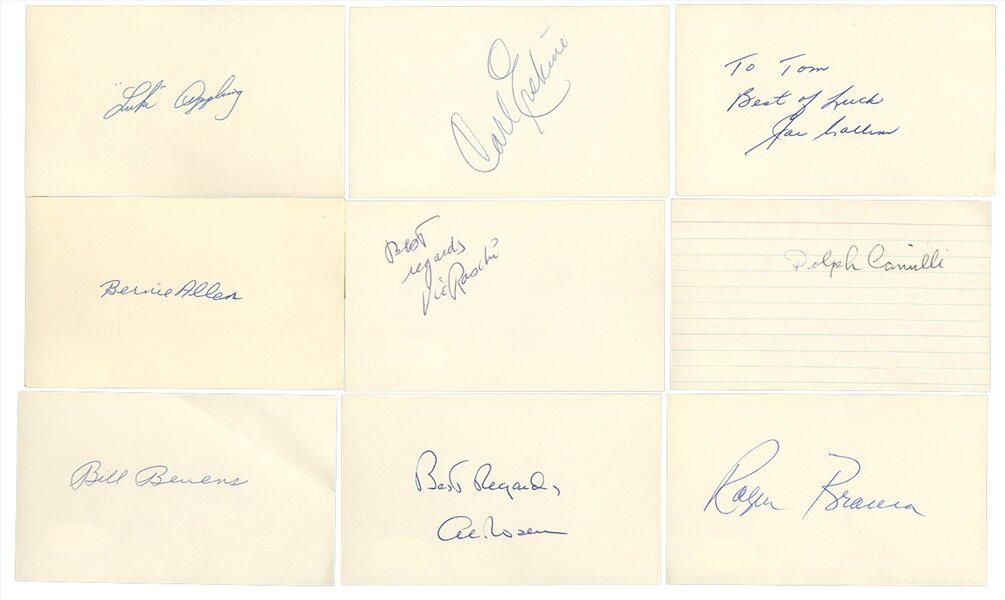
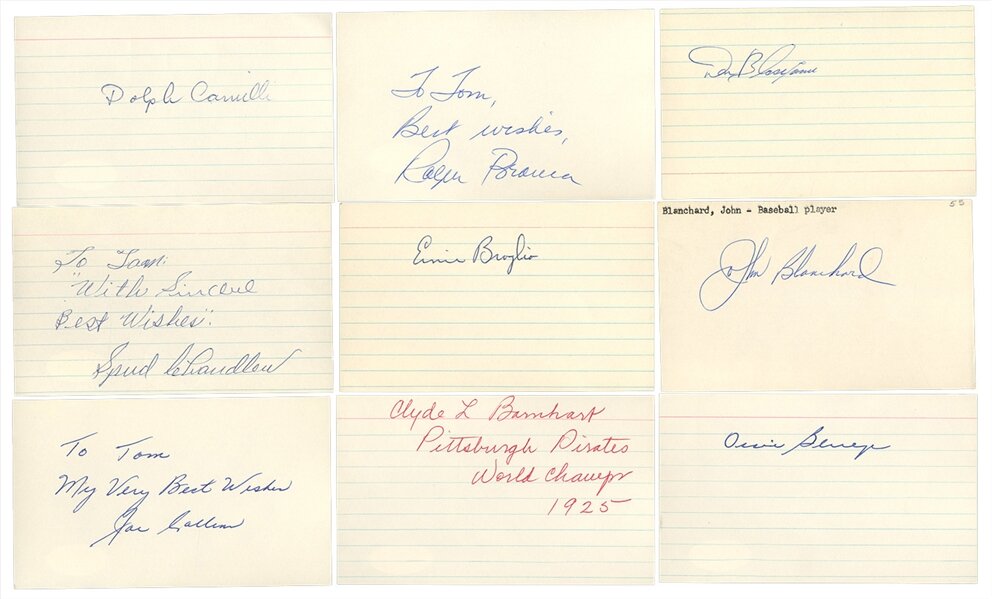
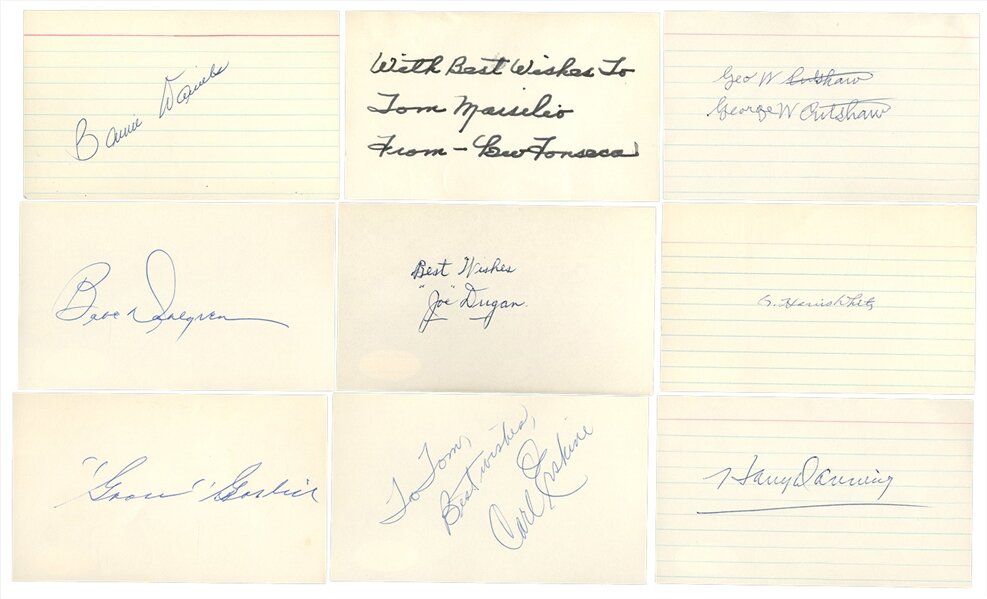
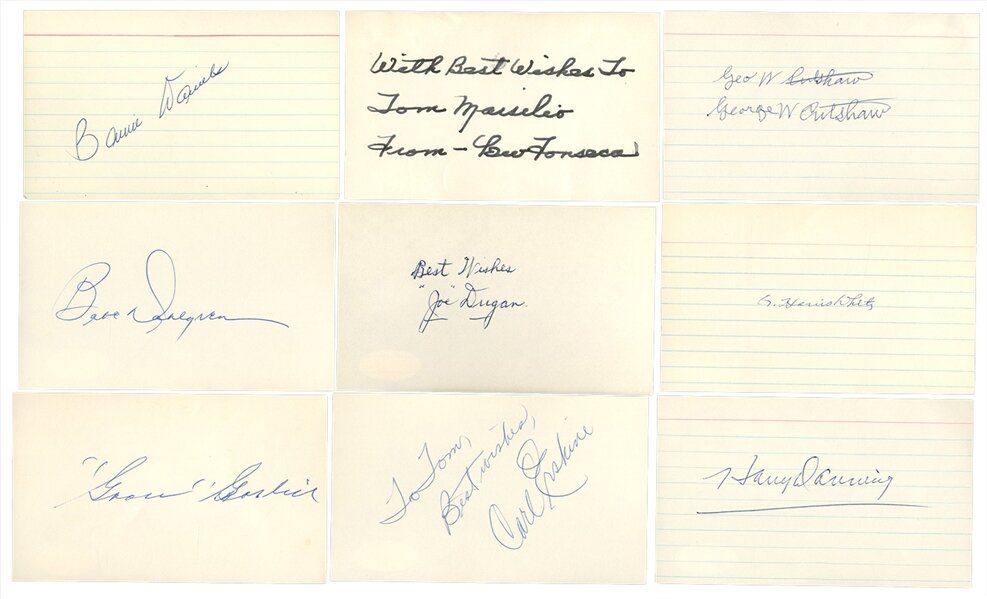
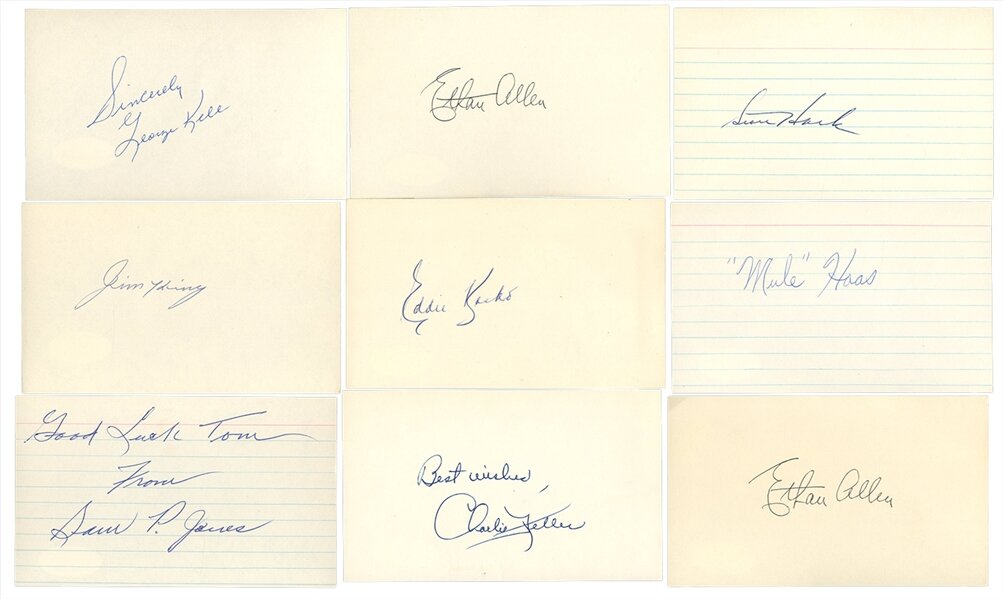
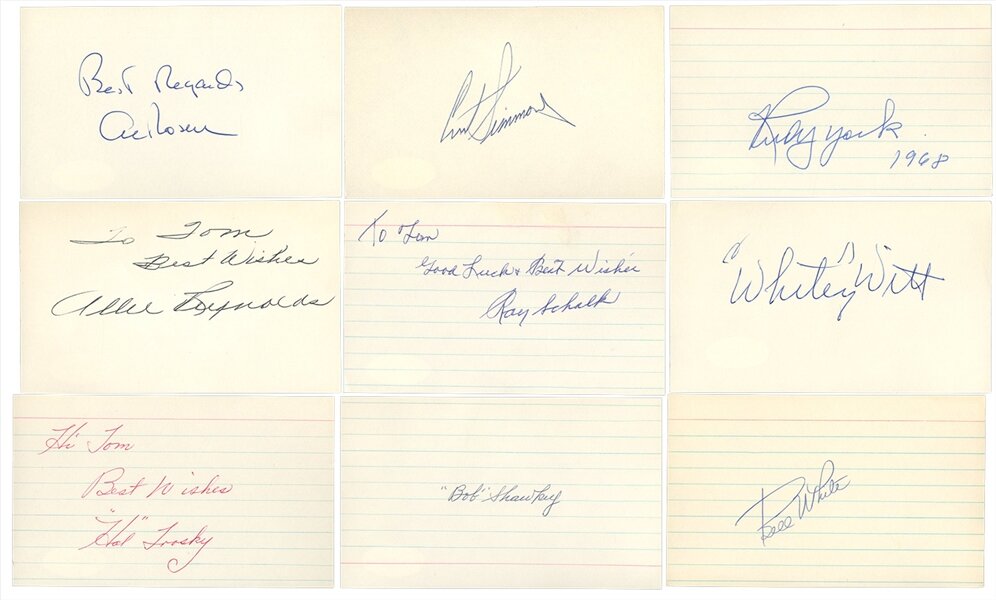
Additional signed items from this collection that also sold in the same auction included this beautiful letter from Rube Marquard:
Also included were a number of framed Hall of Fame plaques, including autographs of Hall of Famers Carl Hubbell, Lefty Grove, Nap Lajoie, Casey Stengel — who said asked Tom to “Join the N.Y. Mets” — and Jackie Robinson:
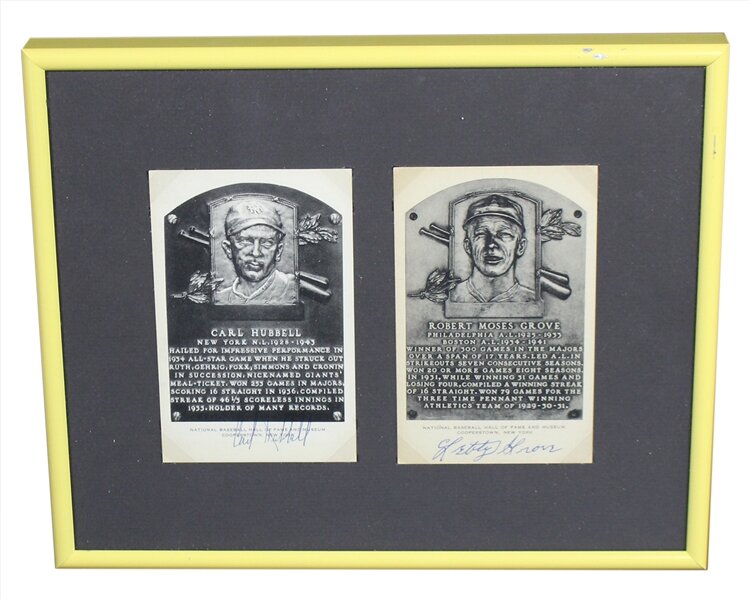
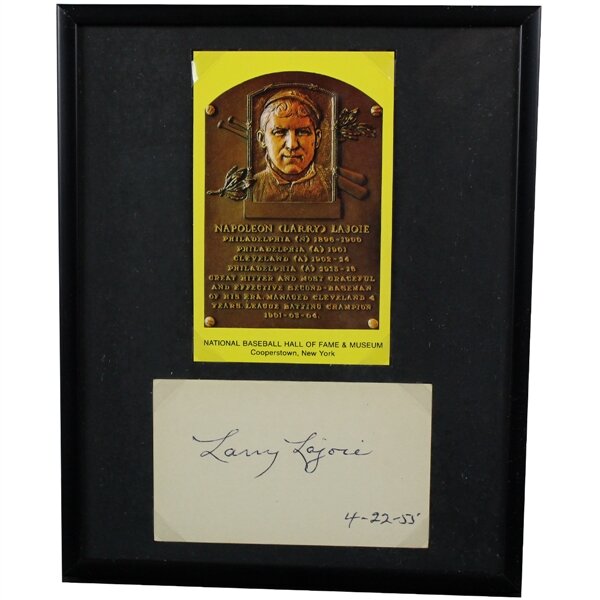
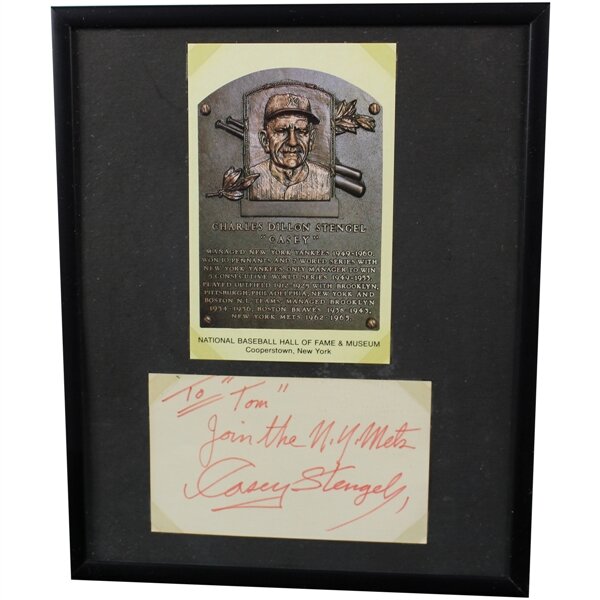
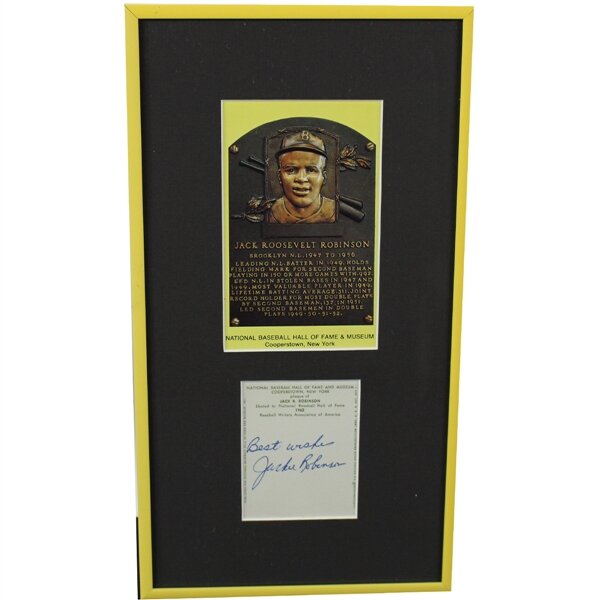
A number of Marsilio’s index cards were also sold individually, including T206ers Elmer Flick — who, like Crawford, also noted the year was 1966 — Rube Marquard, and Fred Snodgrass; in addition to Edd Roush and Roger Peckinpaugh — all of whom were favorites of TTM autograph seekers.
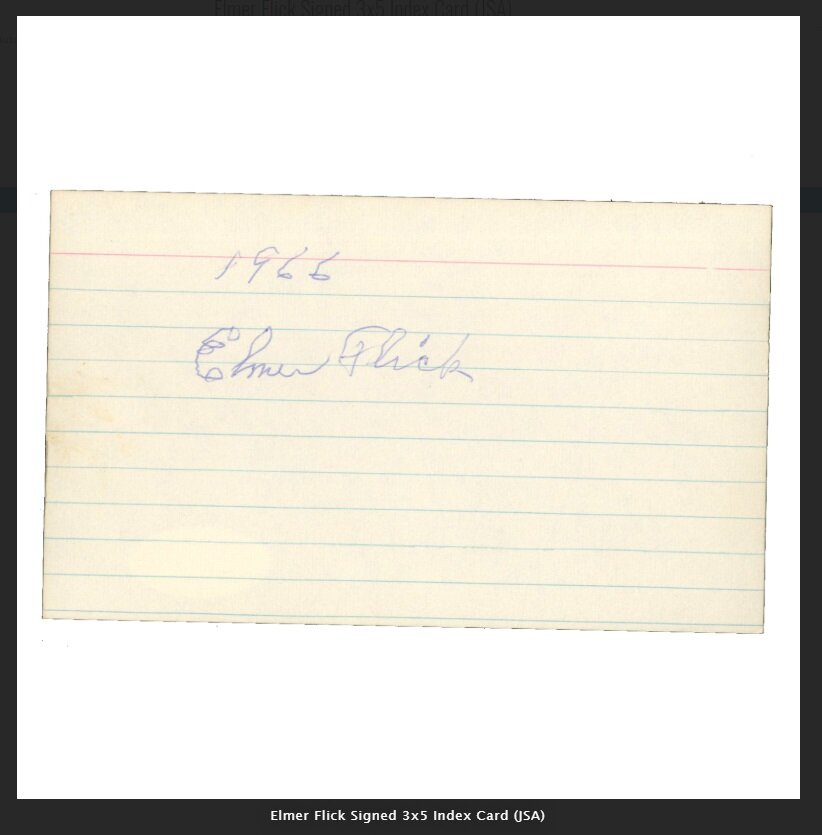
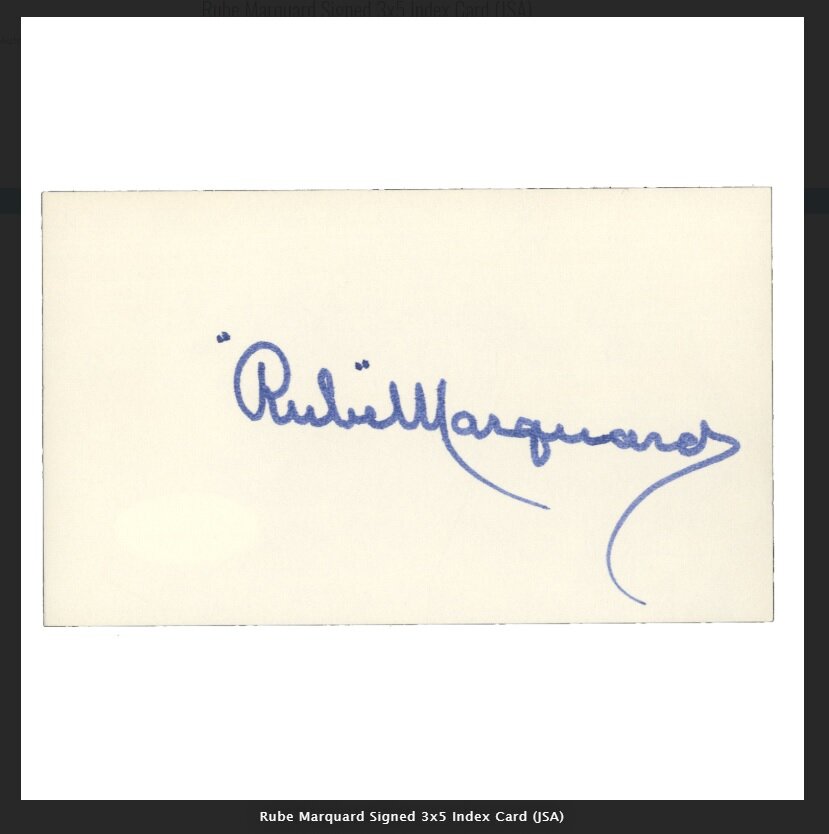
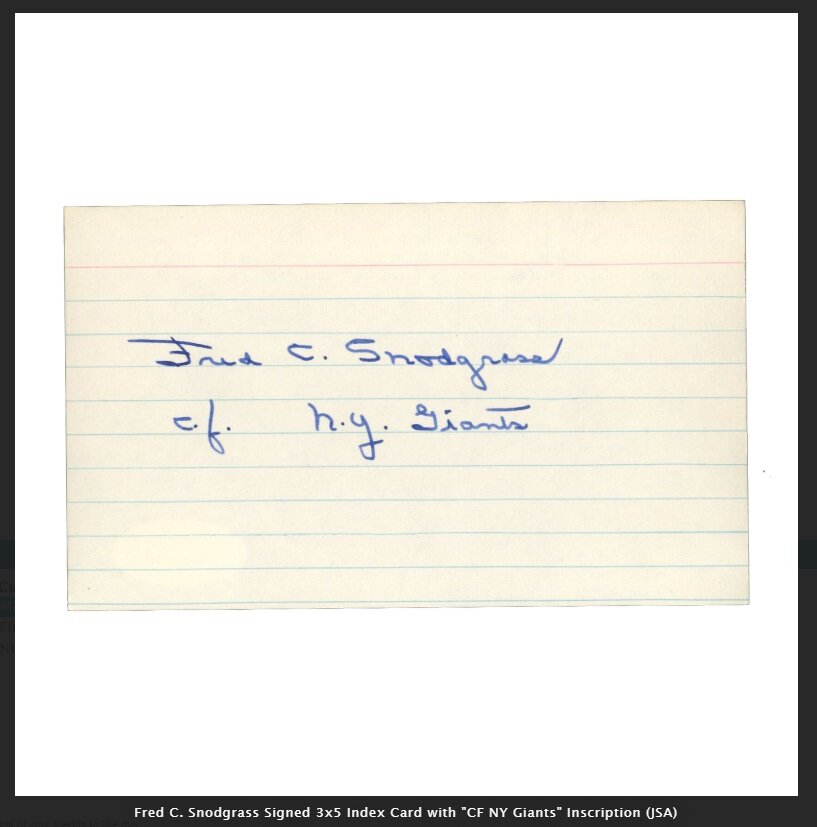
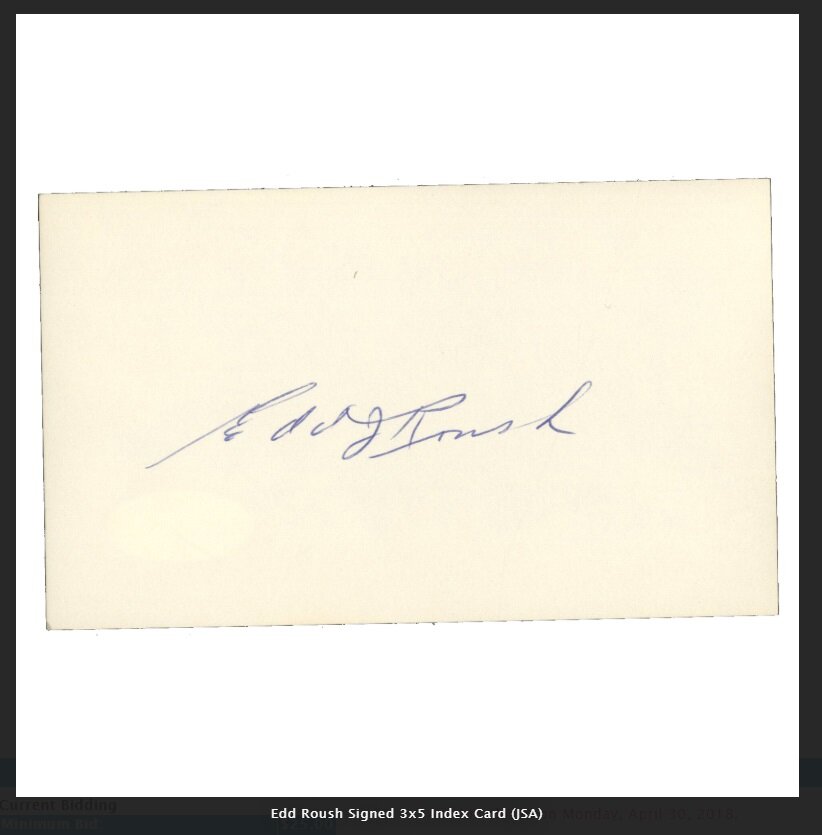
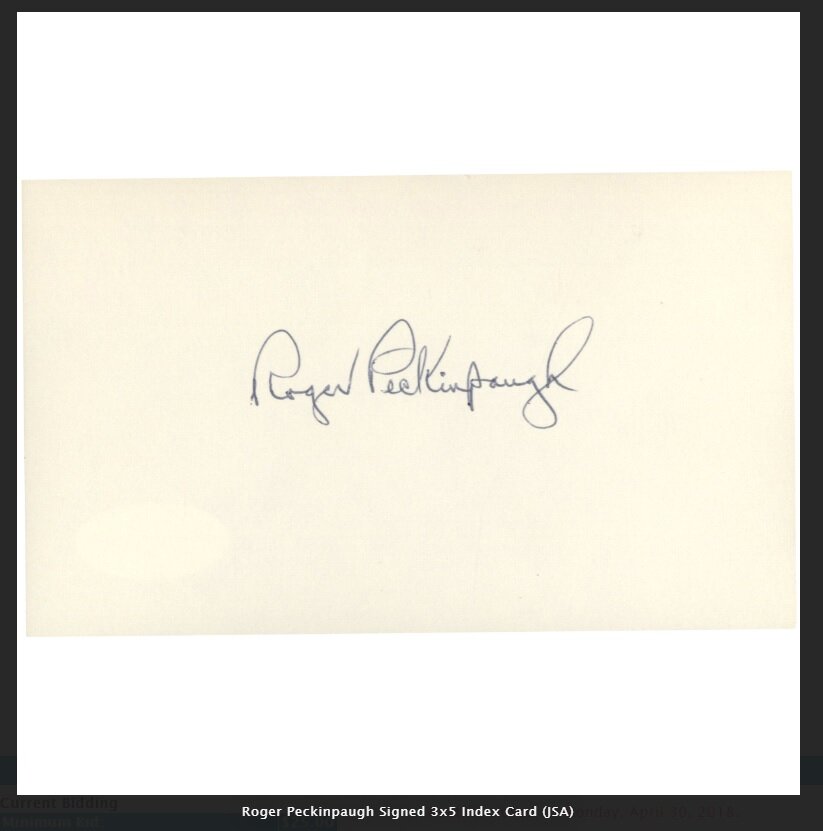
When the TPAs cannot to be trusted – and frankly, even if they’re doing their level best – it is information like this which provides the corroborative or circumstantial evidence of authenticity -- the "provenance" we crave when taking that leap of faith and purchasing a wonderful little autographed piece of cardboard.











